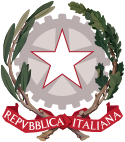
The President of the Council of Ministers of the Italian Republic, commonly referred to in Italy as Presidente del Consiglio, or informally as Premier and known in English as the Prime Minister of Italy, is the head of government of the Italian Republic. The office of Prime Minister is established by Articles 92 through to 96 of the Constitution of Italy. The Prime Minister is appointed by the President of the Republic after each general election and must have the confidence of the Italian Parliament to stay in office.
A presidential election is the election of any head of state whose official title is President.

The Union was an heterogenous centre-left political and electoral alliance of political parties in Italy. The Union was the direct heir of The Olive Tree coalition which represented the centre-left in the 1996 and 2001 general elections. However, The Union also included parties of the radical left, which were not affiliated with The Olive Tree. The Union was led by Romano Prodi, Prime Minister of Italy from April 2006 to April 2008, and former President of the European Commission. Collapsing in the wake of the 2008 Italian political crisis, the alliance was succeeded by the current-day centre-left coalition.

General elections were held in Italy on 14 June 1987, to select the Tenth Republican Parliament. This election marked the final inversion of the trend of the entire republican history of Italy: for the first time, the distance between the Christian Democrats and the Communists grew significantly instead of decreasing, and this fact was seen as the result of the deindustrialization of the country. The growth of the service sector of the economy, and the leadership of former PM Bettino Craxi, gave instead a new strength to the Socialists. A remarkable novelty was the rise of the new Green Lists, while a new party obtained its first two parliamentary seats: the Northern League.

The first elections for the European Parliament in Italy were held on 10 June 1979.

The 1980 South Carolina United States House of Representatives elections were held on November 4, 1980 to select six Representatives for two-year terms from the state of South Carolina. The primary elections for the Democrats and the Republicans were held on June 10 and the runoff elections were held two weeks later on June 24. Three incumbents were re-elected, but John Jenrette of the 6th congressional district was defeated in his bid for re-election and the open seat in the 1st congressional district was taken by the Republicans from the Democrats. The composition of the state delegation after the elections was four Republicans and two Democrats.

The 1980 United States elections was held on November 4. These included the 49th presidential election, Senate elections, and House of Representatives elections. Other elections were held as well.

The Tuscan regional election of 1980 took place on 8 June 1980.

The Italian regional elections of 1980 were held on June 8. The fifteen ordinary regions, created in 1970, elected their third assemblies.

A referendum on abolishing the wage escalator was held in Italy on 9 June 1985. The escalator allowed for the automatic growth of the salaries of Italian workers at the same rate as inflation. This mechanism was accused of causing high inflation which damaged the lira during the 1980s, with a 20% annual rate. Voters were asked whether they wanted to repeal a law passed by the government of socialist Prime Minister Bettino Craxi which had strongly reduced this automatic mechanisms. The referendum was called by the Italian Communist Party. Those voting "yes" wanted to restore the automatic growth of the salaries as the inflation ratio, and those voting "no" wanted to retain the law which tried to reduce the high inflation.

The 2010 Italian local elections were held on different dates; most on 29–30 March oncurrently with the Regional elections.

The 1964 Italian local elections were held on 22 November. In Italy, direct elections were held in 5,772 comuni: in each comune were chosen mayor and members of the City Council.

The 1970 Italian local elections were held on 7 and 8 June. In Italy, direct elections were held in 5,772 comuni: in each comune were chosen mayor and members of the City Council.

The 1975 Italian local elections were held on 15 and 16 June. In Italy, direct elections were held in 5,772 comuni: in each comune were chosen mayor and members of the City Council.

The 1985 Italian local elections were held on 12 and 13 May. In Italy, direct elections were held in 5,772 comuni: in each comune were chosen mayor and members of the City Council.

The 1990 Italian local elections were held on 6 and 7 May. In Italy, direct elections were held in 5,772 comuni: in each comune were chosen mayor and members of the City Council.

The 1993 Italian local elections were held on 6 and 20 June, on 21 November and 5 December. It was the first time where citizens could vote both for the mayor and the city council.

The 1994 Italian local elections were held on 12 and 26 June, on 20 November and 4 December. It was the first time where citizens could vote both for the mayor and the city council.

The 1995 Italian local elections were held on 23 April and 7 May, on 19 November and 3 December.

The 1999 Italian local elections were held on 13 June and 27 June.















